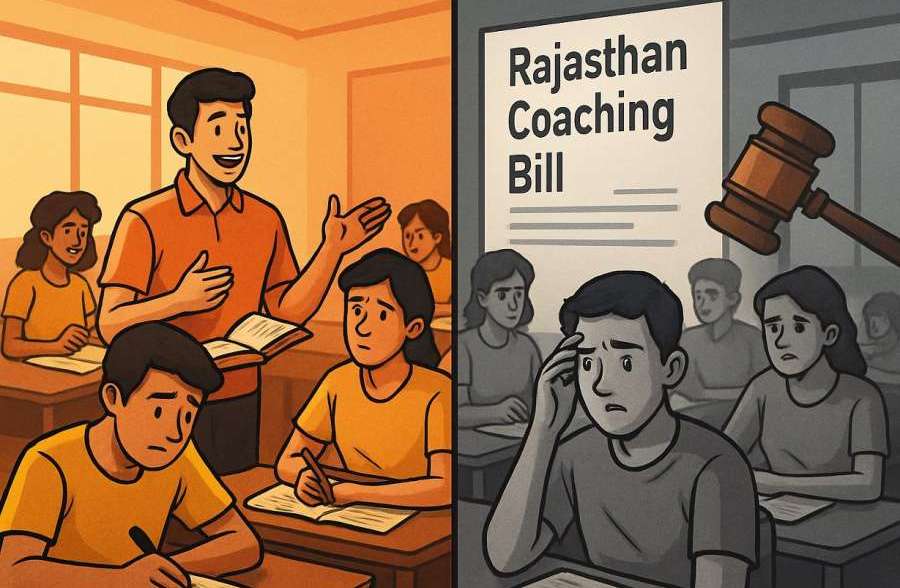
In the bustling coaching hubs of Rajasthan, particularly Kota, the pressure cooker environment for competitive exam prep has long been under scrutiny. With student suicides making headlines and economic strains hitting local businesses, the state government has introduced the Rajasthan Coaching Centres (Control and Regulation) Bill-2025. This legislation aims to bring much-needed oversight to an industry that’s both a lifeline for aspiring engineers and doctors and a source of intense stress. But is it the right fix? Let’s dive into the details.
The Backdrop: Kota’s Coaching Crisis
Kota, often dubbed India’s coaching capital, has seen a turbulent year. Enrollments in coaching institutes have dropped sharply, with estimates showing a 30% decline from the 2023-24 session to 2024-25. This slump has left hostels and related businesses struggling, operating at just 40-60% capacity in some cases. Amid this, student welfare issues, including mental health crises, have prompted urgent calls for reform. The bill, passed in early 2025, directly targets these concerns in high-stakes centers like Kota, where thousands flock annually for IIT-JEE and NEET preparation.
Key Provisions of the Bill
The Rajasthan Coaching Centres (Control and Regulation) Bill-2025 introduces a framework to standardize operations and protect students. Here’s what stands out:
- Mandatory Registration: All coaching centers must register with district authorities, ensuring only compliant ones operate.
- Infrastructure and Safety Standards: Institutes are required to meet specific guidelines on facilities, including mental health support and emergency protocols.
- Fee Regulations and Refunds: Clear norms for fee structures, with provisions for refunds if students withdraw, aiming to prevent exploitative practices.
- Penalties for Violations: Fines and potential shutdowns for non-compliance, with a focus on curbing issues like false advertising or inadequate counseling.
These measures are designed to address root causes of student distress, such as unregulated environments that exacerbate pressure.
Expert Views: Supportive Yet Critical
Reactions to the bill have been mixed. Many experts acknowledge its intent to safeguard students, especially in light of Kota’s suicide rates, but some label it a “knee-jerk reaction” that might not fully tackle underlying problems. For instance, educators argue that while registration and standards are positive, the bill could burden smaller institutes without guaranteeing better outcomes. Others praise the emphasis on welfare, noting it aligns with national guidelines from the Union education ministry. One expert highlighted that true change requires cultural shifts in how success is measured, beyond just regulatory tweaks.
Potential Impact on Kota and Beyond
If implemented effectively, the bill could reshape Kota’s ecosystem. With one in four IIT aspirants in 2025 having prepared in the city—and half of the top 100 JEE Advanced ranks linked to Kota coaching—the stakes are high. Proponents hope it will revive enrollments by building trust, while critics worry about over-regulation stifling innovation. Local businesses, already reeling from the enrollment dip, are watching closely for signs of recovery. Broader implications could influence other states with similar coaching industries.
As Rajasthan rolls out this bill, the real test will be in its enforcement. Will it curb the tragedies that have plagued places like Kota, or will it need further refinements? Stakeholders are hopeful, but only time will tell if this marks a turning point for student-centric education reform.